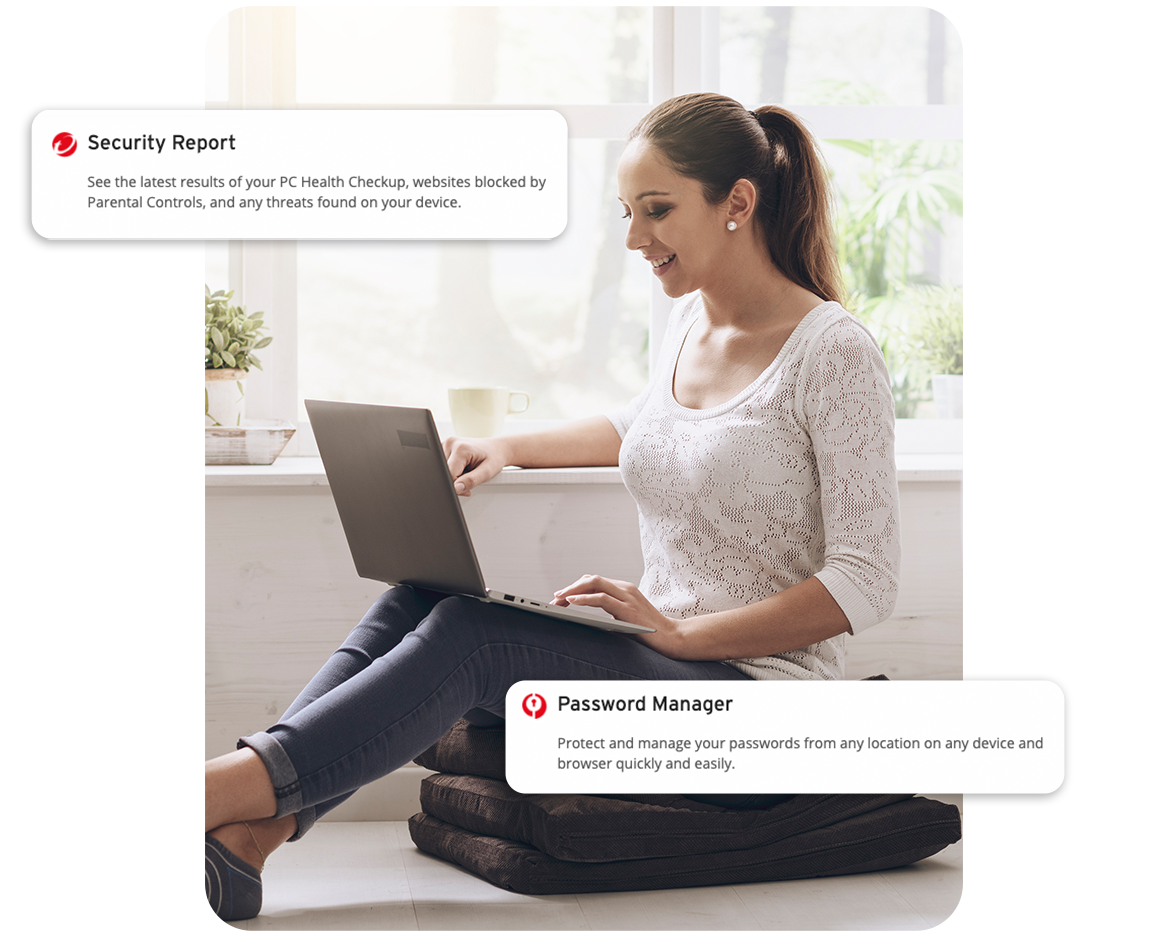While accessing the dark web is legal, it has garnered a reputation for hosting illicit content and activities. Cybercriminals frequent this space to trade stolen credentials like credit card numbers, email addresses, passwords, and Social Security numbers. Apart from identity theft, it serves as a hub for various criminal endeavors, including the trafficking of illegal drugs, trading in malware, weapons, counterfeit goods, prostitution, human trafficking, money laundering, and illegal pornography. In essence, while the dark web itself is not inherently illegal, the majority of activities conducted within it are unlawful.

Identity Theft
Identity theft is the unauthorized use of someone's personal information, usually for fraudelent purposes. This also includes stealing sensitive information such as Social Security numbers or credit card numbers to commit financial fraud or assume another person's identity. With the rise of digital transactions and online interactions, identity theft has become a major concern, resulting in financial losses and significant disruptions to victim's lives. Preventative actions and increased awareness are critical in combatting this widespread type of cybercrime
What are types of Identity Theft
Identity theft can take several forms, each targeting a different aspect of an individual's personal information. Some common types of identity theft include:
- Account takeover fraud is a devious form of online identity theft in which a criminal gains unauthorized access to someone's digital accounts and impersonates them for fraudulent purposes like stealing money or sensitive information.
- Financial identity theft occurs when criminals steal and misuse private financial data such as credit card numbers or bank account details to make unauthorized purchases or take out loans under the victim's name.
- Medical identity theft occurs when criminals utilize pilfered personal health data, such as insurance particulars or medical records, to fraudulently access healthcare services, prescriptions, or insurance benefits in the victim's name, without their authorization or knowledge.
- Child identity theft involves the theft of a minor's personal data like their Social Security number to illegally open accounts or file for government benefits, often going undetected for years and causing legal and financial difficulties later in the child's life.
- Synthetic identity theft is an intricate form of fraud where criminals combine real personal data such as Social Security numbers with fabricated information to generate new identities and open fraudulent accounts that can be challenging to uncover.

What is data breach
A data breach is a digital break-in in which hackers or unauthorized individuals get access to sensitive information held by a company or organization.
This may include personal information such as names, addresses, or financial information. Imagine someone sneaking into a secured room and searching through files without permission. Data breaches can result in identity theft, financial loss, and privacy concerns for anyone whose information is compromised.

What is the Dark Web
The dark web is the hidden part of the internet. It makes up approximately 5% of internet content, and is part of a much larger area known as the deep web, which conversely makes up a huge 90% of the internet. The dark web, which can only be accessed via specific browsers, is a series of websites that require specific authorization to enter. Dark websites allow users unparalleled anonymity due to encryption software such as the Tor (short for The Onion Router) browser. Unlike the surface web, the dark web does not use information available on search engines like Google or Bing; instead, it utilizes content from individual sources: forums, email, social media, and company databases. These features are why the dark web is an enticing place to do business for criminals.
To mitigate risks associated with the dark web, individuals and organizations employ dark web monitoring services, which continuously scan this clandestine realm for any mentions of compromised information, providing timely alerts to preempt potential cyber threats.

Identity Theft Protection
Protecting yourself from identity theft requires a comprehensive approach, and incorporating dark web monitoring can bolster your defenses. Start by implementing strong password practices and using unique passwords for each online account. Regularly monitor your financial accounts and credit reports for any unusual activity, which can be an early indicator of identity theft. Stay vigilant against phishing attempts by never sharing personal information in response to unsolicited requests. Dark web monitoring services add an extra layer of security by continuously scanning the dark web for any mentions of your personal information. If your data is detected, you'll receive immediate alerts, enabling you to take prompt action to mitigate potential risks. Additionally, consider enrolling in identity theft protection services that offer comprehensive monitoring and assistance in case of identity theft. By combining proactive measures with dark web monitoring, you can significantly reduce the likelihood of falling victim to identity theft and minimize its potential impact.
Trend Micro Identity Theft Protection Subscription Plans
ID Protection
AU$59.95
Normally AU$99.95
Top Features
- Anti-tracking
- Social Media Account Monitoring
- Web Threat Protection
- Personal Data Leak Check
- Password Generator
- Password Manager
- Dark Web Monitoring
- Wi-Fi Checker
ID Protection Advanced
AU$99.00
Normally AU$180.00
- Anti-tracking
- Social Media Account Monitoring
- Web Threat Protection
- Personal Data Leak Check
- Password Generator
- Password Manager
- Dark Web Monitoring
- Wi-Fi Checker
Top Features
Also Includes
- Includes Equifax Credit Protect (12-month)1 [value of $120]
- Credit alerts for key changes on your credit report1
- Monthly updates to your credit score1
- Access to 12 credit reports (one per month)1
1 Via Equifax Credit Protect (12-month) [value of $120]. Equifax Credit Protect (12-month) must be claimed via redemption. Equifax Credit Protect (12-month) subscription is for 12 months only, regardless of your Trend Micro product subscription length. Equifax Credit Protect (12-month) subscription starts after redemption code has been successfully processed by Equifax. Claims must be made within 90 days of purchase. Only one redeemable code per purchase. For full t&cs and to claim visit creditprotect.trendmicro.com
Why do you need Trend Micro Identity Theft Protection?

Award-Winning Protection
Trend Micro has the highest quality solutions and the best security protection, as recognised through awards by independent tester AV-Test since 2003.
Trusted by Millions
Dedicated to assuring 100% customer satisfaction. Our security experts are ready to assist you 24x7.
30 Years of Innovation
Thirty years of experience and innovation guarantees only the best internet security and antivirus protection.
100% Money Back Guarantee
Enjoy a 30-day money-back satisfaction guarantee when you purchase through the Trend Micro online shop.
Get Total Protection with Trend Micro Device Security Pro
If you would like to have a comprehensive protection with basic antivirus software complete together with identity theft protection, Trend Micro has your back!
Device Security Pro offers advanced device and identity protection across PC, Mac, mobile phones and tablets, to help keep you safe, no matter what you do online. Device Security Pro includes internet security and mobile security features, including antivirus, malware, ransomware, and spyware protection against both established and emerging threats. This safeguards your devices, personal information, and data from the grasp of cybercriminals.
Highlights of Device Security Pro include:
- Protect PCs, Macs, mobile phones and tablets
- Antivirus, malware, ransomware, & spyware protection
- Guard against identity theft with dark web monitoring
- Anti-track and Ad-blocker to stop third parties from collecting your data
- Protect and manage passwords
- Keep children safe online
- Secure VPN to protect your privacy

Frequently Asked Questions
According to Constella’s 2021 Identity Breach Report, over 12 billion personal records were exposed in data breaches throughout 2020. These records are often sold among criminals or exposed on the dark web for exploitation.
- Exercise caution. Take care when divulging personal details online. Just because a website requests information doesn't necessitate its provision. Inquire about the requester's identity and purpose. Additionally, minimize the personal data shared on social media.
- Exercise discretion. Exercise caution before clicking on links or opening email attachments. If from an unfamiliar sender, refrain from opening them.
- Utilize secure Wi-Fi networks. Ensure secure wireless connections when engaging in online shopping or banking. Consider using a Virtual Private Network (VPN) to encrypt your data and safeguard your online activities.
- Permanently remove files from your device. Merely placing files in the recycle bin isn't sufficient, as they remain accessible to identity thieves. Use security software equipped with a digital shredder to thoroughly erase files from your PC.
- Install comprehensive security software. Ensure all your devices are equipped with a comprehensive security software that safeguards PCs, Macs, tablets, and smartphones.
Dark web monitoring is a cybersecurity solution that entails scouring the dark web for your sensitive information and personally identifiable information (PII). It serves as a key component in safeguarding against identity theft, enabling proactive responses to data leaks before harm occurs. This service operates by conducting daily scans across numerous websites, including marketplaces, forums, and chat rooms, to detect any instances of your information. Upon detection, you receive alerts, empowering you to take prompt action to mitigate potential risks.
Several signs may indicate that your identity has been stolen:
- Suspicious Activity on Social Media: Unusual activity, such as unauthorized posts or messages, could indicate that someone has gained access to your accounts.
- Missing Mail or Bills: Your regular mail or email statements cease.
- Unexplained Transactions: Unrecognized purchases appear on your credit card statement, even small ones. Criminals often initiate with minor purchases before escalating.
- Errors on Your Credit Report: Your credit report contains suspicious entries, such as inquiries for credit that you did not initiate.
- Received Notices of Data Breaches: If you receive notifications about data breaches from companies you've interacted with, your information may have been compromised.
- Unexpected Credit Denials: Despite having a high credit score (as per your last check), you are denied credit for a loan or new credit card. Identity theft can easily tarnish a credit rating.
Discovering that your identity has been stolen can be a stressful experience. Begin by taking a deep breath and following these initial steps:
- Contact your local or national law enforcement agency to file a report regarding the identity theft.
- Notify your bank and credit card companies of the fraudulent activity. They may be able to reimburse you for any losses or close unauthorized accounts.
- Check your credit report with credit reference agencies. You are entitled to one free copy of your credit report every 12 months from each of the three nationwide credit reporting companies. This allows you to check if anyone has attempted to obtain credit using your name.
- Keep detailed records of all conversations and paperwork related to the identity theft. Organize your information into a centralized location. This documentation can serve as evidence for your case and assist you in resolving the complications that may arise from identity theft.


